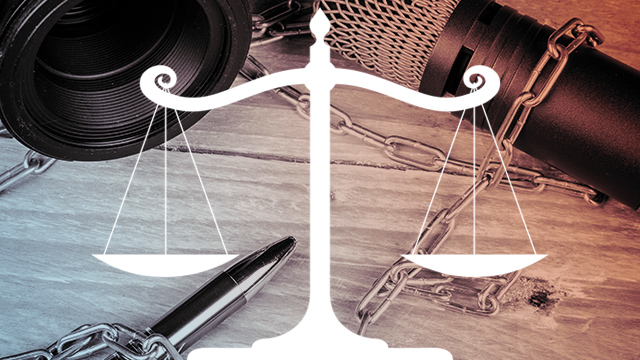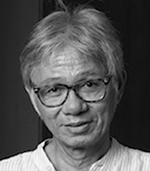

The question has been often asked since Rodrigo Duterte, upon becoming President, began demonizing and bullying it:
Is the Philippine press really free?
These days, that is asked with particular alarm, occasioned by a slew of implausible allegations — Securities Act offenses, tax evasion, and libel — either brought directly or incited by the Duterte regime against Rappler and its CEO, Maria Ressa. For herself alone, Ressa has had to post bail six times to remain free, at least while under prosecution.
Duterte has been threatening to close Rappler, although, probably to ease his impatience, he has been made to realize that, while yet remaining in business, Rappler has some use to him. Sure enough, the thinking fits the line of argument his apologists advance about press freedom:
If press freedom no longer exists, why does the press still do?
Of course, not only is it a simpleminded argument, it is an absolutely smart-assed one. The relationship between press and freedom is not anything like the cause-and-effect relationship between smoke and fire, such that where there’s a press there’s freedom. Press freedom is not automatically proved alive by the ability of the press to exercise its democratic right to publish without state interference; true proof lies in what happens to the press after exercising that right.
And if anything is proved by what’s happening to Rappler and Ressa it is the opposite of freedom; it is persecution. It is persecution pursued with cold-bloodedness and impunity, such vicious sense as reflected in the mockery and weaponization of the law.
Given the institutional role of the press as watchdog on the powers that be, it must have crossed the minds of even the most normal of leaders to restrict press freedom. What more in the case of a leader with a sociopathic compulsion to rule as a dictator?
Forty-six years ago, Rodrigo Duterte’s own professed idol, Ferdinand Marcos, killed press freedom. It happened on the very first night of his martial law, the crackdown itself serving as his surprise announcement. Duterte himself is now killing press freedom, and he’s also doing it without an officially declared emergency, although not for the same strategic reason as was the case with Marcos.
Legal deterrents have been installed precisely to prevent a repeat of the Marcos experience, and Duterte has yet to be able to go past them. To be sure, he’s been trying to go around them by coopting counterweight institutions like Congress and the courts. In the meantime, it seems to suit him to do his murder piecemeal (except in his properly declared war on drugs), to choose his targets, to pick on Rappler and Ressa.
Being the mere lesser half of the evil genius that Marcos was and being indeed a certified narcissist, with only his ego to serve, how can Duterte be expected to grasp, let alone grant, the principle of press freedom?
Press freedom may only derive from the more general one of freedom of expression, but, because of its institutional nature, it has a practical primacy over the other. It is relied upon not only to facilitate the search for truth but, by some process of distillation, to sort through the controversies attending that search. The intent is to afford the individual beneficiaries of the freedom of expression, the citizens themselves, a more or less informed mind before they even attempt to speak or act it.
Take away press freedom and other freedoms become useless. Freedom of speech and freedom of assembly make for nothing more than a free market of chatter and gossip. The press is replaced by one lone self-interested, self-installed sanctifying voice.
How real is that prospect for us?
Rappler and Maria Ressa are the test case: they are press freedom under siege personified. Mocked and beaten with a bent law, they won’t be intimidated, for they know only too well what the stakes are, and these stakes are not merely professional; these are moral.
In other words, the fight is not theirs alone. This is the fight of every freedom-loving and fair-minded citizen of this country. To leave Rappler and Maria Ressa alone, to leave their chances at justice where justice may well be guaranteed by the mere presence of a sitting judge, is to surrender to the wishes of a sick-minded regime. – Rappler.com